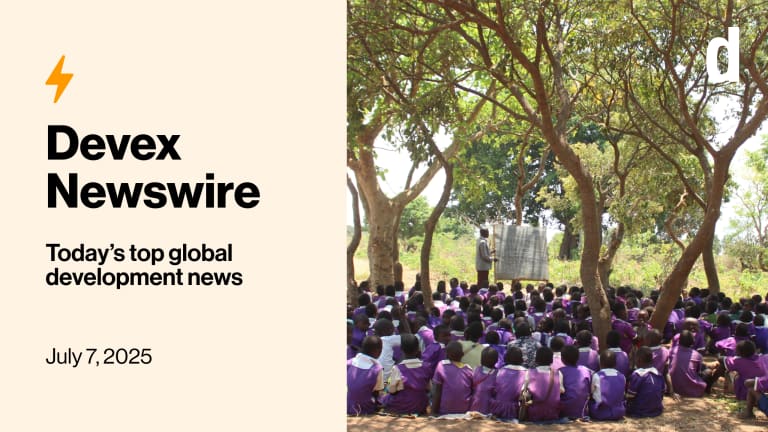Some HIV advocates had hoped U.S. President Joe Biden would give more than just a mention to the U.S. President's Emergency Plan for AIDS Relief, or PEPFAR, during his annual address before Congress this week. For example, a boost in funding.
Also in today’s edition: French President Emmanuel Macron may have just sounded the death knell for a major international agreement, and one NGO points a finger at U.K. aid cuts for cholera’s rapid spread in Malawi.
Known as PEPFAR, the emergency plan for AIDS relief turned 20 a couple of weeks ago. Former President George W. Bush’s launch of the initiative during his 2003 State of the Union address was a game changer for the fight to address the global HIV and AIDS epidemic — one that some even reckon was his true legacy, overshadowed by the war in Iraq and that time he said “Brownie, you're doing a heckuva job.”








